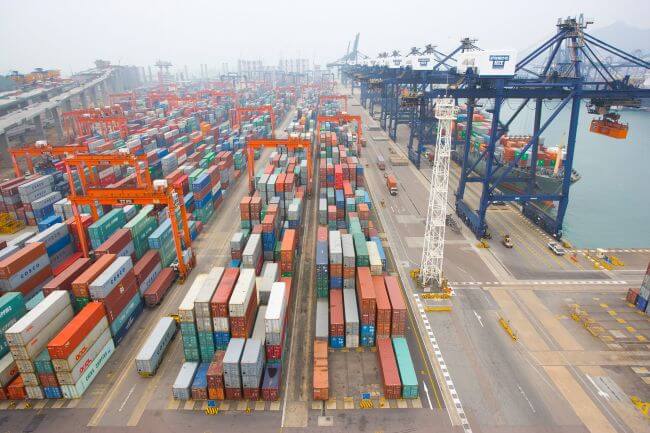

Supply chain headaches continue for US shippers over a year since the hard enforcement of the Electronic Logging Device (ELD) mandate that further exacerbated trucking shortage problems.
Congestions and delays as a result of a lack of truckers have caused an increase in overall shipping costs. According to online freight forwarder iContainers, this is expected to take a toll on US exporters, whose competitiveness on the global stage may be hurt.
“The trucking shortage continues to pose problems for shippers’ supply chains. It’s causing unpredictable delays and added costs, which are a huge business deterrence that can ultimately affect US exporters’ competitiveness in international markets,” says Klaus Lysdal, vice president of operations at iContainers.


With trucking companies booked full for days in advance, it has become considerably more difficult to acquire trucking coverage. Of these, last-minute shipments or shipments with unanticipated zero-hour changes have been the most affected.
“Expect significantly higher costs for last minute trucking arrangements or modifications. This is either because shipments end up going into storage or demurrage for failing to secure a trucker or simply because a higher rate is needed to get a trucker to accept the last-minute move,” explains Mr Lysdal.
According to the Miami-based forwarder, the trucking shortage situation appears to have somewhat improved since its climax last year. That is due, in large part, to industry players acclimatizing to the situation.
“From what we’ve seen, truckers have gotten better at managing their work within the new regulations,” says Mr Lysdal.
“Most shippers have also come to terms with the situation. They have realized that more planning is required in advance and have learned to adjust their day-to-day planning and find ways to make it work.”
Much has been made of autonomous trucks, an idea welcomed by iContainers. As the industry pushes down this digital path in an attempt to inject more efficiency to resolve the shortage, it will still, nonetheless, be some time before this becomes the new norm.
“I look forward to this becoming a reality as one can really envision it offering some very useful alternatives. Whether that means autonomous trucks covering the interstate moves and remote area transits while local drivers handle the drop-off or any other imaginable set up remains to be seen,” explains Mr Lysdal.
“Till then, there is still much work and testing to do as well as rules and regulations to be worked out before we can really consider an autonomous truck solution.”
With no answer in near sight, the forwarder is advising shippers to accept and adapt to the new situation accordingly or risk jeopardizing their supply chains and business.
“At iContainers, we have a notice on our website to warn clients of the situation. We have also been advising clients to book in advance and generally make sure everything is ready at least a week before they want to load.”
“The ones that are not adapting or not willing to understand that you cannot just order a truck to show the next day that will end up having their supply chains hurt the most.”
Reference: dearcontent.com










We believe that knowledge is power, and we’re committed to empowering our readers with the information and resources they need to succeed in the merchant navy industry.
Whether you’re looking for advice on career planning, news and analysis, or just want to connect with other aspiring merchant navy applicants, The Marine Learners is the place to be.